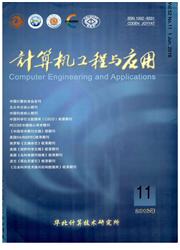

 中文摘要:
中文摘要:
为减小测距误差对无线传感器网络定位精度的影响,将蛙跳算法应用到距离式定位算法的位置计算阶段中,提出了蛙跳定位算法。该算法在适应度函数设计中,根据节点间的测距信息对锚节点进行了加权处理,以降低测距误差对定位结果的影响。结合最小最大法构造初始种群,使其包含更多可行解,从而提高算法效率。仿真结果表明,与采用极大似然估计法或总体最小二乘法来进行位置计算的距离式定位算法相比,该算法有效降低了距离误差对定位精度的影响,具有较高的定位精确度和稳定性,是一种实用的无线传感器网络节点定位方法。
 英文摘要:
英文摘要:
In order to reduce the impact of measurement error on wireless sensor network localization, shuffled frog leaping algorithm is applied to location calculation of rang-based localization. This paper proposes a shuffled frog leaping localization algorithm. This algorithm designs fitness function weighted according to anchor nodes, thereby reducing effect of measurement error on result. At the same time, this algorithm constructs initial solution set based on rain-max method, which leads to enhancement efficiency of algorithm. In the simulation experiments, compared with maximum likelihood estimation algorithm and total-least square algorithm, the shuffled frog leaping localization algorithm reduces the impact of measurement error effectively and has high accuracy. Therefore, the shuffled frog leaping localization algorithm is a practical localization solution for the wireless sensor network.
 同期刊论文项目
同期刊论文项目
 同项目期刊论文
同项目期刊论文
 期刊信息
期刊信息
